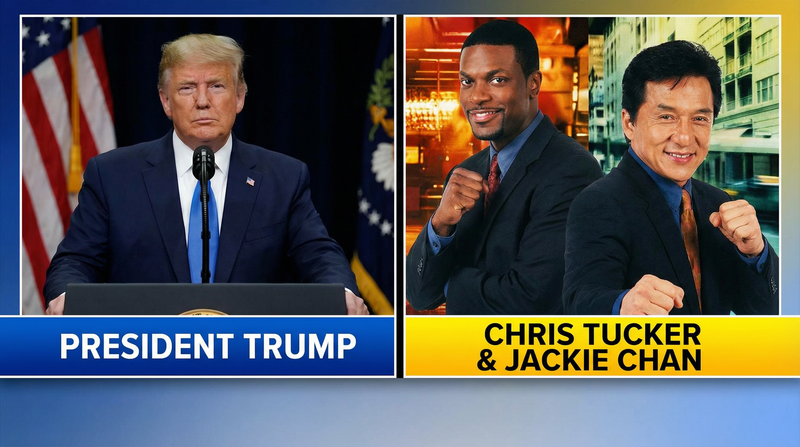Senate Unanimously Passes No Tax on Tips Act, Delivering Relief to Service Workers
Legislation Fulfilling Trump’s Campaign Promise Awaits House Approval Amid Deficit Concerns In a rare display of bipartisan unity, the U.S. Senate voted 100-0 on May 20, 2025, to pass the No Tax on Tips Act, a bill that eliminates federal income tax on qualified tips for workers in
Legislation Fulfilling Trump’s Campaign Promise Awaits House Approval Amid Deficit Concerns
In a rare display of bipartisan unity, the U.S. Senate voted 100-0 on May 20, 2025, to pass the No Tax on Tips Act, a bill that eliminates federal income tax on qualified tips for workers in traditionally tipped occupations such as servers, bartenders, and hair stylists. The legislation, introduced by Senators Ted Cruz (R-TX), Rick Scott (R-FL), and co-sponsored by Democrats Jacky Rosen (D-NV) and Catherine Cortez Masto (D-NV), fulfills a key campaign promise by President Donald Trump to provide financial relief to service industry workers. The bill now heads to the House of Representatives, where its passage remains uncertain due to fiscal concerns.
The No Tax on Tips Act, formally S.129 in the 119th Congress, allows taxpayers to claim a 100% deduction for cash tips—received via cash, credit, debit, or checks—reported to employers under existing tax laws. The deduction is capped at $25,000 annually and excludes high earners with prior-year compensation exceeding $160,000 (adjusted for inflation). The bill also extends a business tax credit for employer-paid payroll taxes on tips to include beauty service industries like barbering and nail care, effective for taxable years beginning after December 31, 2024. The Treasury Department is tasked with publishing a list of traditionally tipped occupations within 90 days of enactment to ensure the policy targets intended workers.
🚨BREAKING: The Senate has passed President Trumps "No Tax on Tips Act." 100-0 vote.
— Benny Johnson (@bennyjohnson) May 20, 2025
Promises made. Promises Kept. pic.twitter.com/coG7S39b1b
“American workers in restaurants, salons, and other service industries rely on tips to make ends meet,” said Senator Cruz in a statement. “This bipartisan victory ensures they keep more of their hard-earned money without Washington’s interference.” Senator Scott emphasized the bill’s economic benefits, noting, “After years of inflation, this is a critical step to support families and boost industries like Florida’s tourism sector, which employs over 1 million in tipped jobs.”
The unanimous Senate vote reflects broad support, with endorsements from the National Restaurant Association and the Professional Beauty Association. However, critics, including the Tax Foundation, warn the policy could increase the federal deficit by $100 billion to $250 billion over a decade and disproportionately benefit higher-tip earners, such as servers at upscale restaurants, over lower-wage tipped workers. The Economic Policy Institute has also raised concerns that the exemption could reduce pressure on employers to raise base wages, potentially undermining minimum wage efforts for tipped workers, who can be paid as little as $2.13 per hour federally.
BREAKING: The Senate just unanimously passed Trump's "No Tax on Tips" Act with a vote of 100-0
— Libs of TikTok (@libsoftiktok) May 20, 2025
PROMISES MADE PROMISES KEPT 🇺🇸 pic.twitter.com/RVehaclVj9
Posts on X captured the public’s mixed sentiment, with some hailing the bill as a “win for service workers” while others called it “fiscal folly” due to its potential budget impact. The legislation’s fate now rests with the House, where a companion bill, H.R.482, introduced by Representatives Vern Buchanan (R-FL) and Byron Donalds (R-FL), awaits consideration. House Democrats, who opposed a February 2025 budget resolution enabling tax cuts, may resist unless spending cuts offset the revenue loss. The Congressional Budget Office estimates that extending Trump’s 2017 Tax Cuts and Jobs Act alone could cost $4 trillion, leaving limited room for additional tax breaks.
As the House debates the bill, its passage could reshape the financial landscape for millions of tipped workers, particularly in states like Nevada and Florida with high concentrations of service industry jobs. However, the looming deficit concerns and competing tax priorities may complicate its path to President Trump’s desk for final approval.




